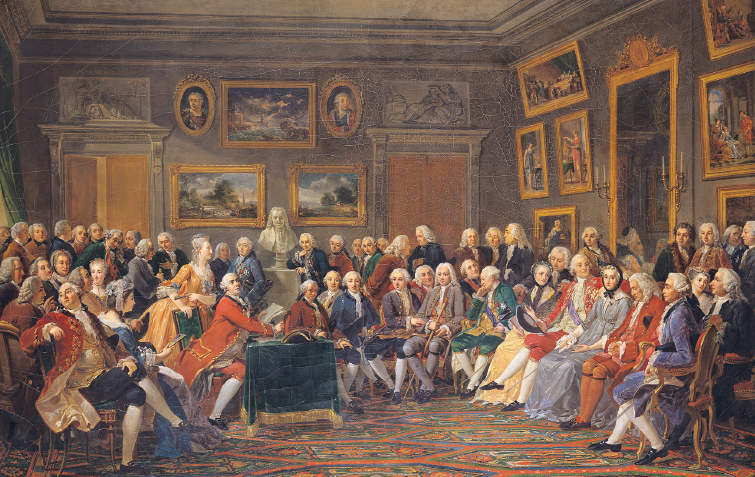Understanding Western Society
Printed Page 497
Chapter Chronology
TTHE SCIENTIFIC REVOLUTION was a crucial factor in the creation of the new worldview of the eighteenth-century Enlightenment. This worldview grew out of a rich mix of diverse and often conflicting ideas. Nonetheless, three central concepts stand at the core of Enlightenment thinking. The first and foremost idea was that the methods of natural science could and should be used to examine and understand all aspects of life. Nothing was to be accepted on faith; everything was to be submitted to rationalism, a secular, critical way of thinking. A second important Enlightenment concept was that the scientific method was capable of discovering the laws of human society as well as those of nature. These tenets led to the third key idea, that of progress. Armed with the proper method of discovering the laws of human existence, Enlightenment thinkers believed, it was at least possible for human beings to create better societies and better people.

